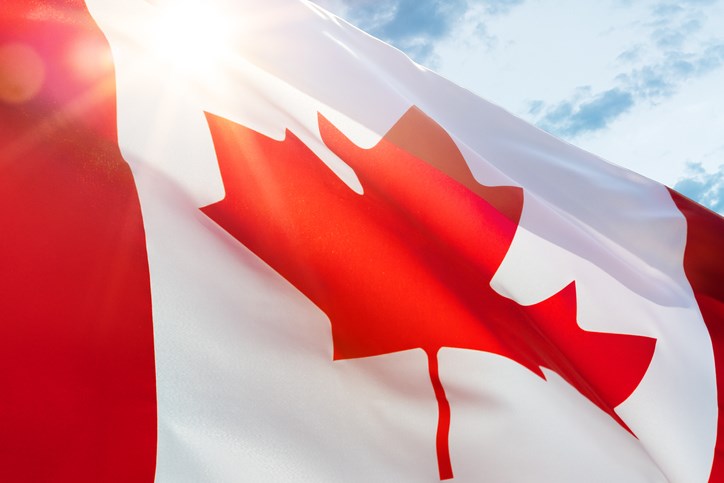Canada has been the focus of some international coverage over the past three weeks on account of a series of protests and blockades against restrictions and mandates related to the COVID-19 pandemic.
The attention is also significant at home. When Research Co. and Glacier Media asked Canadians last weekend, 81% told us they were following news stories related to the protests and blockades “very closely” or “moderately closely.”
Some foreign media outlets have essentially portrayed a Canada divided in two halves, in a botched attempt at parity that is not supported by properly collected and analyzed data. Almost three in five Canadians (59%) oppose the protests and blockades, including large proportions of Atlantic Canadians (66%), British Columbians (62%) and Albertans (also 62%).
The way Canadians perceive the protests and blockades is directly related to their vaccination status. Practically two-thirds of those who have been inoculated against COVID-19 (64%) are against the actions of the “convoy.” In stark contrast, 70% of the tiny minority that has not received a single vaccine shot support what took place in Ottawa and other locations. In addition, 78% of vaccinated Canadians oppose repealing all COVID-19 mandates and restrictions, while this decision would be welcomed by 68% of those who have chosen not to get inoculated.
On the invocation of the Emergencies Act, support for the course of action undertaken by the federal government outpaces opposition by a two-to-one margin (63% to 28%). Majorities of Canadians who voted for the Liberal Party (83%), the New Democratic Party (NDP) (67%) and the Green Party (53%) in last year’s federal election think the federal government was right to rely on the Emergencies Act. Among Conservative Party voters, the proportion drops to 46%. Among People’s Party voters – practically half of whom acknowledge not being vaccinated against COVID-19 – the number is even lower (30%).
This does not mean that the federal government is walking away from the events of the past fortnight without lingering doubts. Practically two- thirds of Canadians (65%) say they are “very concerned” or “moderately concerned” about the federal government relying on the Emergencies Act to stop other protests in the future. A slightly higher proportion (70%) express worry about Canada’s image in the world being negatively affected by the protests and the federal government’s actions. Canadians are also concerned about two other issues: foreign money being used to fund the activities of protesters (71%) and violence breaking out at the site of protests and blockades (81%).
Throughout this entire ordeal, social media has provided a depressing window into the illiteracy of organizers and supporters of the “convoy.” Some of the sad commentary – such as the unironic videos of somebody who insists on calling herself the “Queen of Canada” – started months ago. We have seen more signs of delusion from fellow Canadians, including an Instagram post that claims the Governor-General requires 958,000 emails with the headline “Non Confidence Vote” to remove a prime minister, or the suggestion that waving a white garment provides immunity from arrest in accordance with international law.
Many of us will justifiably look at these ruminations with dismay and derision, but others will believe anything they read, as long as they share the goals of the source. Most Canadians are not convinced that this ignorance should be endorsed: 64% disagree with the notion that the people protesting against restrictions and mandates are fighting for freedom and 58% do not think their actions so far have been justified.
One of the most outlandish demands of the “convoy” was the overthrow of the federal government. Their view is shared by 26% of Canadians, including 46% of Conservative voters and 55% of People’s Party voters. This might explain why some Members of Parliament felt compelled to pose for pictures with protesters.
These events are transpiring just a year after the attack on the Capitol in the United States. What made that day especially nauseating—and worthy of an investigation that is still ongoing – was the support of elected politicians to a possible insurrection. Canada, in spite of what international media outlets may assume, is not equally divided by the mandates. While more than a third favour the protests, fewer than three in ten decry the government’s invocation of the Emergencies Act or suggest that it should be overthrown. Sizable silent majorities are on the other side.
In the United States, supporters of Donald Trump believed a lie. In Canada, the “convoy” created it. Participants who did not think this through are now facing the consequences, without the backing of public opinion or the unbridled support of a major political party. In any case, the People’s Party, that refuge of the unvaccinated which somehow garnered the support of one in 20 voters in the last federal election, will welcome them with open arms and no representation in the House of Commons.
Mario Canseco is president of Research Co.
Results are based on an online study conducted from February 18 to February 20, 2022, among 1,000 adults in Canada. The data has been statistically weighted according to Canadian census figures for age, gender and region. The margin of error, which measures sample variability, is plus or minus 3.1 percentage points, 19 times out of 20.





